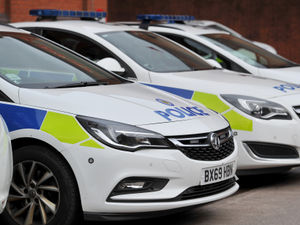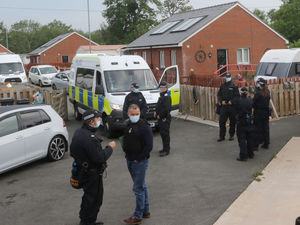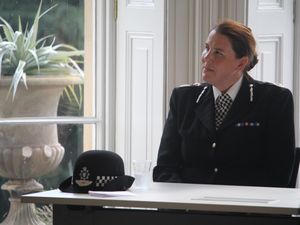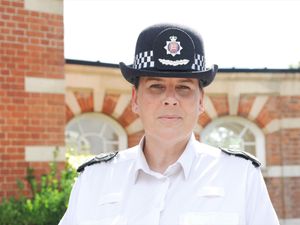Fifty drugs arrests plus cash and weapons seized in County Lines swoops
Police serving Shropshire have made 50 arrests and seized thousands of pounds worth of drugs and weapons in a major crackdown on County Lines criminals.
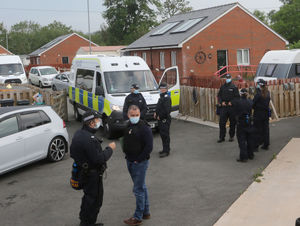
The action saw West Mercia Police officers swoop on properties in a bid to disrupt gangs which use mobile phone lines to sell substances including cocaine, cannabis and heroin in both neighbouring and distant towns.
Drugs with an estimated street value of £62,000 was confiscated along with more than £16,000 in cash, 20 weapons including BB guns, knives, a cross-bow, baseball bats, swords, nine vehicles and 40 mobile phones by officers armed with search warrants.
In addition 85 homes where the occupant could potentially be at risk of 'cuckoo-ing', the practice of using the home of a vulnerable person to deal drugs, were checked.
The successful operation between March 7 and 13 went ahead last week as part of a national week of action against County Lines gangs.
Drugs are transported from mainly large urban areas to smaller rural towns, with the ‘line’ referring to the phone number used to make orders. Gangs may challenge existing dealer groups in an area or another county ‘line’ in order to take over customers.
West Mercia's Assistant Chief Constable Richard Cooper said: “The targeted activity carried out last week by our officers to tackle County Lines gangs demonstrates how committed we are to disrupt and dismantle drugs supply, and protect children and young people and those would could be vulnerable to exploitation in our communities.
“With 50 arrests made and several warrants executed we have significantly disrupted County Lines activity right across Herefordshire, Shropshire and Worcestershire – and importantly, we have safeguarded a number of vulnerable people.
“It is vital to remember that operations such as these during this national week of intensification are very much ‘business as usual’ for our teams, and demonstrates the great work done by officers and staff throughout the year.
"The intelligence gathering and preparation that goes into making arrests and disrupting County Lines have been, in some cases, weeks and months in the making.
“Education is also key, and our officers have conducted many visits to schools, social care providers, health professionals and other important community groups, to provide them with information on what to look for and how we can help the community to spot the signs of cuckooing – where gangs target the most vulnerable individuals and use their homes to sell drugs.
"We also spent the week delivering exploitation and vulnerability training to over 250 people across the three counties, which is possible thanks to funding from our Police and Crime Commissioner.
“County Lines continues to remain a priority and we want to ensure the region becomes a no-go area for criminals travelling from elsewhere. We will continue to pursue and prosecute those who bring drugs into our counties, commit violence and exploit vulnerable members of our communities.”
Officers also made a number of drug referrals for some of those remanded in custody and safeguarding referrals for others.
County Lines drug dealers often exploit children and young people, recruiting them to run drugs and cash between urban and county locations and to deal drugs on their behalf. Once recruited in to County Lines it can be difficult for those being exploited to leave, with threats and violence used.
Last June a Dyfed-Powys Police swoop at the Leighton Arches travellers' caravan site in Welshpool uncovered that a gang moved hundreds of thousands of pounds worth of heroin, cocaine and cannabis from Wolverhampton for distribution to Mid Wales towns over a number of months.
A total of 12 members of a County Lines gang - all based in the Wolverhampton and Welshpool areas - have since been convicted of supplying heroin, cocaine and cannabis.
Residents concerned that a neighbour may be a victim of 'cuckoo-ing', the practice of using the home of a vulnerable person to deal drugs, to contact the force immediately on 999, 101 or via force websites or by telephoning Crimestoppers.


